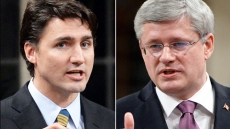Vancouver police are refusing to disclose whether they use, or have ever considered using, a controversial mass-surveillance device widely adopted in the United States and vigorously condemned by civil liberty groups.
Earlier this year the Vancouver department rebuffed a freedom-of-information request asking for any records about a technology known as Stingray. The department claimed that divulging documents on the topic could compromise the effectiveness of the force's investigative techniques.
Pivot Legal Society, the Vancouver-based advocacy organization that submitted the original access request, has since filed an appeal with the province's information and privacy commissioner.
Stingray is a device that imitates cellular communications towers in order to trick mobile devices within range to connect to it instead. The cell-site simulator is then able to intercept both text and audio communication, as well as extract internal data from connected devices and even pinpoint their precise locations.
"It's about police being able to gather information outside of the context of the court system," said Doug King, the Pivot lawyer who filed the information request. "It's an incredibly frightening proposition."
The American Civil Liberties Union has identified 57 agencies in 22 states that own Stingray devices, though the group said that number likely underrepresents the actual total given how many agencies purchase the technology secretly. Known groups include the Federal Bureau of Investigation, the National Security Agency and the Internal Revenue Service.
King said he was especially troubled by American media reports about Harris allegedly requiring customers to sign non-disclosure agreements in order to purchase Stingray technology, pledging not to divulge any information about the device or even any interactions with the company.
"I think by saying the mere acknowledgment of its existence puts it at jeopardy is kind of a confirmation of exactly the concern we have about it: that this can only be effective if nobody has any idea they're being watched by the police," he said.
There have been no confirmed reports of the technology's use in Canada so far.

"If they're ever allowed to be used (here) then it's a no-brainer there needs to be judicial oversight," said King.
Canadians should be concerned about proper accountability measures being put in place, he added, especially given revelations over the past few years about the extent and intrusiveness of government surveillance.
In its response to Pivot, the Vancouver police would neither confirm nor deny having any information related to the mass-surveillance device, including whether it had ever been in contact with the Florida-based manufacturer Harris Corp.
"In some ways that response peaks our interest even more," said King. "If they hadn't at all you assume they would have just said, 'No documents exist.'"
Stingrays also function as catch-all devices, intercepting not just a single signal but rather surveilling indiscriminately anyone within a particular radius.
"The whole reason that we need oversight is because police are normal human beings," King explained.
"They make mistakes and they do inappropriate things just like everybody else does. Somebody needs to be there to catch them and to stop them when that happens."
David Christopher, a spokesman for the civil-liberty organization Open Media, said the issue of Stingrays isn't restricted to Vancouver.
"This really does, presumably, affect police forces right across Canada, and also security agencies like the Canadian Security Intelligence Service," he said.
"In a sense, this is a real litmus test for the new (federal) government," he added. "Will they lift the lid on what's been going on here?"





